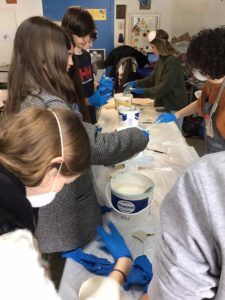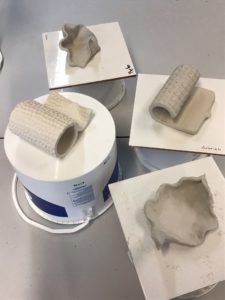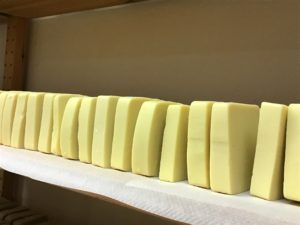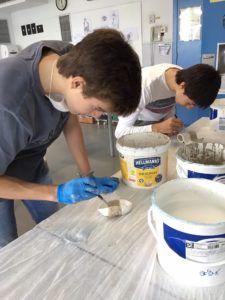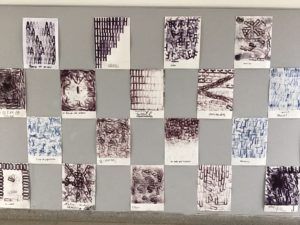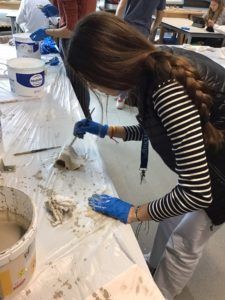28 Ene Project Based Learning ……. Soap of Hope!
The St. Paul’s ESO students have been busily working on an environmental friendly project in the Art Room making soap, hand printing paper packaging, crafting ceramic soap dishes and designing a publicity campaign! Specialists from the areas of the graphic arts, artisan cosmetics, and ceramics as well as our own Science Department have been invited to accompany our students on this new creative journey!
Marion Sargent led two workshops to introduce the history of soap and led ESO2 in the experience of producing about 750 bars of soap using recycled milk cartons as a mold for the square bars. One of the recipes even used recycled oil from the school kitchen to craft a super clean cinnamon kitchen soap suitable for dishes, clothes and hands! Other varieties include a neutral soap with honey, a soap for dry skin with verbenne and spirulina, as well as a soap for oily skin with red clay and tea tree oil.
The paper packaging designs have been inspired by the work of the artist Imma Pla Santamans. ESO1 is learning about the alternatives to single use plastic packaging in favour of rubber stamp printing to craft paper packaging designs which will unify the project around the four letters of H O P E and play with conceptual art as visual motifs.
ESO3 are hand crafting soap dishes using 3 different techniques: the pinch pot, rolled slabs and slab constructions. Laura Martín has come to explore technique and professional glazing for crafting these both beautiful and functional soap dishes.
Publicity for the Soap of Hope is being conceptualized and designed by ESO4. The general campaign will be interspersed with specific promotions for each of the four different soaps. Working digitally with photography and basic design elements such as contrast, alignment, repetition and placement publicity will be printed on paper as well as take life digitally for the web.
This creative and ethical activity raises the students´ awareness of how a basic product such as soap, originally made from animal fats and ashes in people’s homes, has been converted in modern times to a commercial item with often unethical practices in its fabrication, such as the use of toxic chemicals, animal testing or palm oil. Through this activity the students have also reflected on how bars of soap are less likely to contain petroleum, use less plastic packaging and have lower emissions from transportation than liquid soap.
This project is another opportunity for our students to express their solidarity and the bars of soap will be on sale as well as hand crafted ceramic soap dishes at our end of year summer fayre with all proceedings to be donated to charity.
Suzanne Furlan
Visual Arts Teacher


